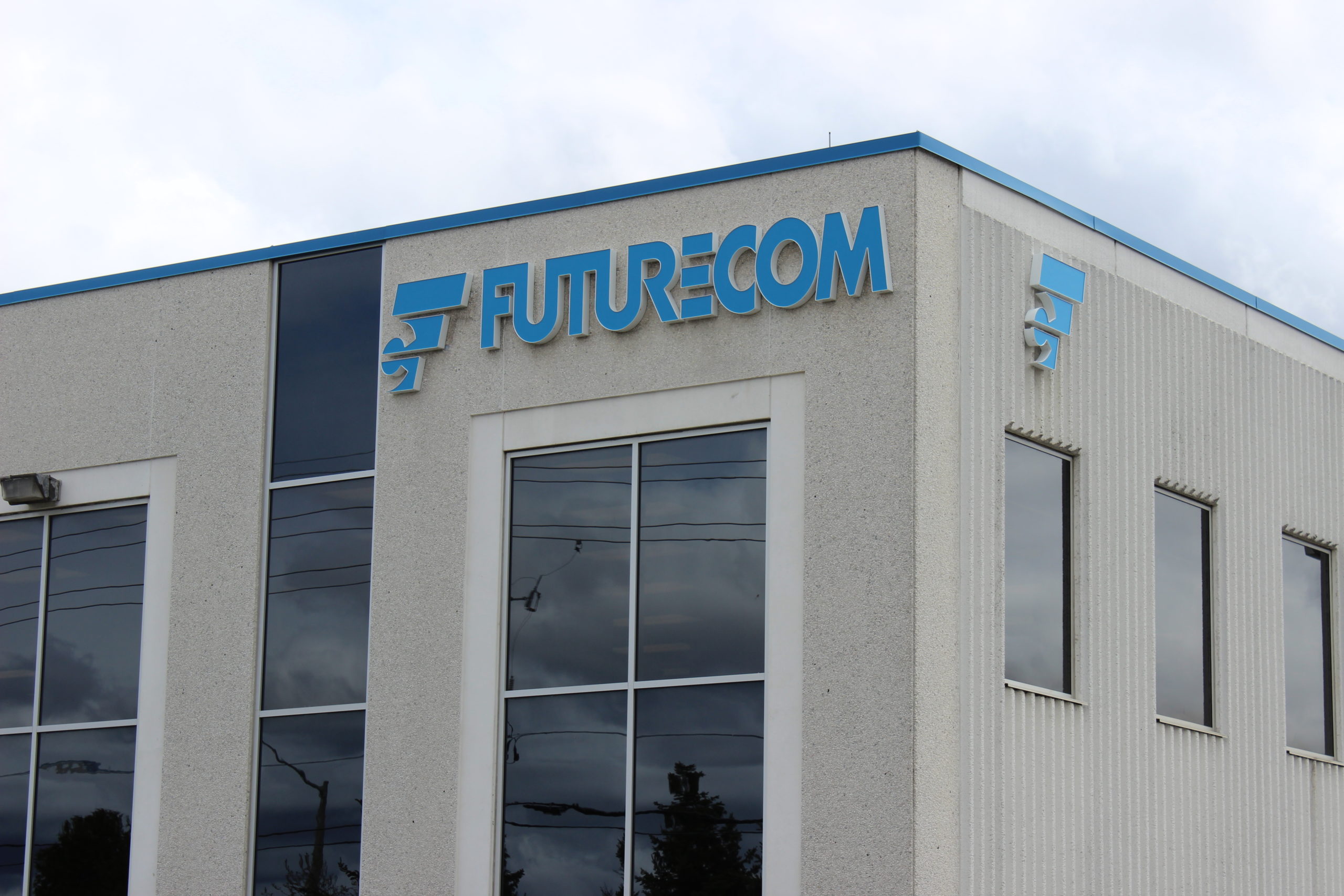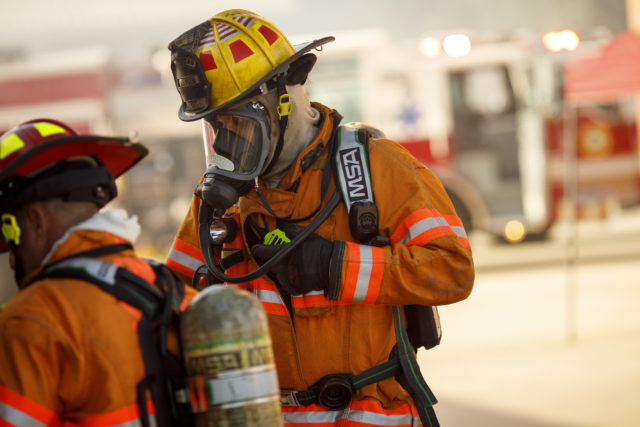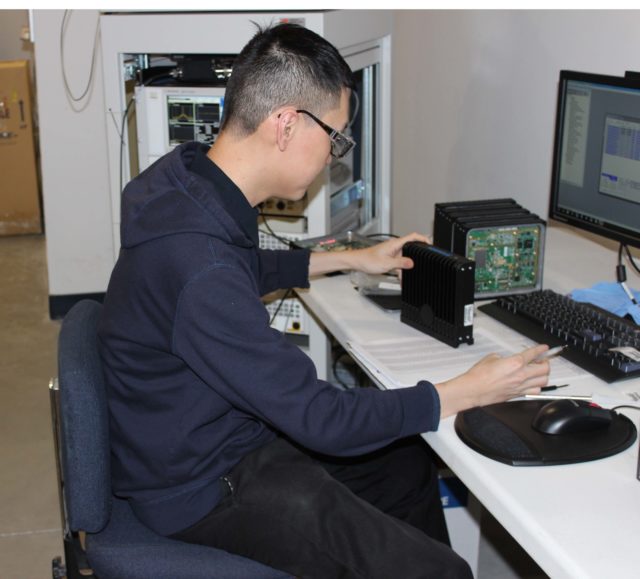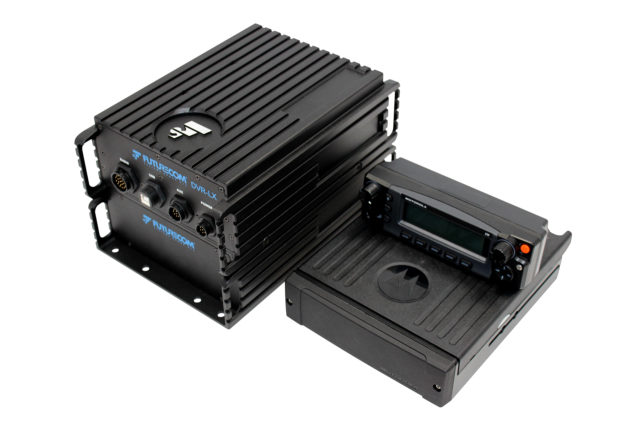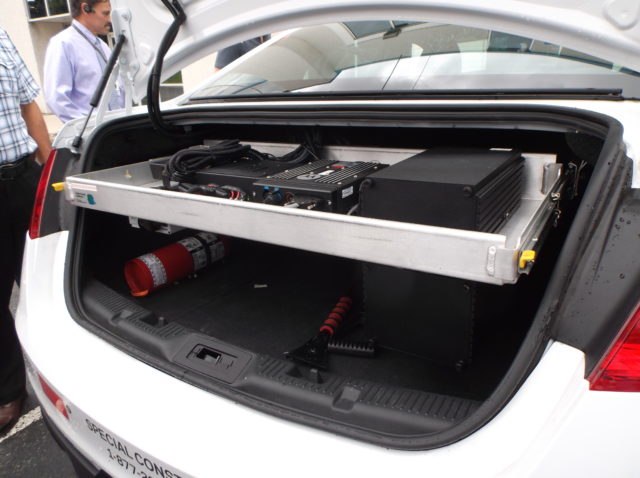-
Headquarters -
3277 Langstaff Road, Concord, ON, L4K 5P8
-
Year established -
1991
-
NAICS -
334290 - Other communications equipment manufacturing
-
Major expansions -
-
Employees -
65
-
Exports -
U.S.
-
Download -
Futurecom Systems Group, ULC
In critical life saving situations, first responders depend on reliable two-way radio communications to make split second decisions.
Messages that are unclear or fail to transmit can have serious consequences. Digital equipment that improves radio frequency coverage, manufactured by Futurecom Systems Group, ULC of Vaughan, helps ensure that crucial information is communicated clearly.
Futurecom’s customers include military, police, and fire departments that depend on reliable radio frequency coverage. The company manufactures radio coverage enhancement equipment including their vehicle repeaters, which are small electronic boxes located in emergency vehicles that retransmit radio signals at higher powers to cover greater distances. Futurecom equipment is sold exclusively by Motorola Solutions, with Motorola supplying the mobile radios that control the Futurecom vehicle repeaters.
As Futurecom marks its 30th year in business in 2021, it continues to do all its manufacturing in Ontario.
Futurecom was started by a group of former GE Canada employees in 1991. Its mission was to build communications systems that worked in subway tunnels and analog vehicle repeaters designed for the Province of Ontario. The Toronto Transit Commission (TTC) was its first significant customer, followed by the Boston, New York, and Los Angeles transit systems that all used Futurecom’s products to send reliable communication signals below ground. The TTC’s subway extension to Vaughan was its last tunnel project. Realizing that subway construction was increasingly rare because most densely populated North American cities had already built one, Futurecom shifted focus to enabling first responders portable two-way radio coverage through Digital Vehicle Repeater Systems (DVRS). The initial phase included replacing old technology in use by large state and provincial police departments.
As Futurecom marks its 30th year in business in 2021, it continues to do all its manufacturing in Ontario. About 65 employees work out of a 25,000 square foot facility in Vaughan. Although Futurecom is aware that offshoring is prevalent in electronics manufacturing, the company sees continued advantages to keeping its operations in Ontario. As a low volume manufacturer with a small and specialized labour force, the cost savings associated with shifting manufacturing offshore would not be significant. Further, the company sees advantages to co-locating the engineering and manufacturing of its high-precision products.
Benefits to manufacturing onshore also include having after-sales service provided by technical staff who are geographically accessible to Futurecom’s North American customers to address any issues. In a highly regulated public safety industry, security risks are also reduced by keeping all of the activity onshore.
President and chief executive officer Paul Halinaty joined Futurecom in 2014 after running design centres around the world for Motorola. He also worked at Atomic Energy of Canada, and with telecommunications clients as part of Deloitte’s Scientific Research and Experimental Development (SRED) tax practice. His varied experiences have convinced him that customers benefit from a skilled workforce that is located in Canada.
Halinaty describes the Futurecom / Motorola Solutions relationship as “symbiotic”, adding that Futurecom is a separate entity holding its own intellectual property. Futurecom benefits from this close relationship with Motorola, with their products working together in the field to deliver reliable signals. Motorola holds nearly 95 per cent of the public safety market share in North America. Futurecom is the exclusive collaborator for repeater devices. Futurecom’s add-on features are included in industry standards because of a successful lobbying effort to the Association of Public Safety Communications Officials (APCO) by Motorola. The Motorola relationship also facilitates sharing of market intelligence, leading to new product ideas and investments in their development. Motorola also takes the lead in any government lobbying efforts related to regulatory matters.
Supplying customers across North America, Futurecom’s products have to work in the trunk of a car on a hot day in New Orleans, and in the middle of winter in Alberta. As well, a mere one-second time delay in functioning can be the difference between a first responder acting on a life saving communication or not receiving it in time.
Futurecom is a relatively low volume operation, so the company is constantly balancing cycle time with inventory costs. Just-in-time manufacturing is not practical, yet it cannot afford to carry large amounts of inventory. The solution is to pre-assemble kits that include the basic parts, and to do final assembly on an order-by-order basis. Each order requires a unique frequency so each one has to be customized. Printed circuit boards are outsourced to another Vaughan company, since Futurecom’s volumes make it impractical to build them in-house. Significant effort is spent on testing, with 100 per cent of the products going through a rigorous quality control process that includes temperature and vibration testing.
Supplying customers across North America, Futurecom’s products have to work in the trunk of a car on a hot day in New Orleans and in the middle of winter in Alberta. As well, a mere one-second time delay in functioning can be the difference between a first responder acting on a life saving communication or not receiving it in time.
Because Futurecom’s products require such precision, a highly skilled workforce is vital. This is an important topic on the CEO’s mind, as it is difficult to find engineers and technicians with radio frequency expertise given they are in high demand from smartphone, satellite and GPS companies. The company addresses this challenge by identifying people with the ability and drive to learn, a willingness to do a variety of tasks, and who will fit in well with the team and training them in house.
Attempts to secure parts or outsource aspects of manufacturing offshore have been unsuccessful since offshore manufacturers have difficulty meeting Futurecom’s quality standards. The company tries to buy everything from within 160 kilometres, and if it is manufactured elsewhere, it is sourced from Canadian suppliers.
As Halinaty describes it “the ideal candidate is someone who can design a high tech digital signalling processor and mop the shop floor on the same day.” The 65-person workforce comprises about 35 per cent manufacturing, 45 per cent engineering, product design and support, and the remaining 20 per cent in operational functions including procurement.
Procurement can be a challenge for Futurecom since it can be difficult to gain leverage with large suppliers because of its size. Smaller suppliers are used for metal housings. Attempts to secure parts or outsource aspects of manufacturing offshore have been unsuccessful since offshore manufacturers have difficulty meeting Futurecom’s quality standards. The company tries to buy everything from within 160 kilometres, and if it is manufactured elsewhere, it is sourced from Canadian suppliers.
Futurecom supplies hundreds of police and fire departments and military organizations around the world, ensuring first responders and military personnel can communicate effectively while saving lives and protecting property. It plays an important role in ensuring that users can make quick decisions, relying on clear, uninterrupted communications. For the last 30 years, it has been a proud, Ontario-based manufacturer making an important contribution to first responders.
Published: November 23, 2021
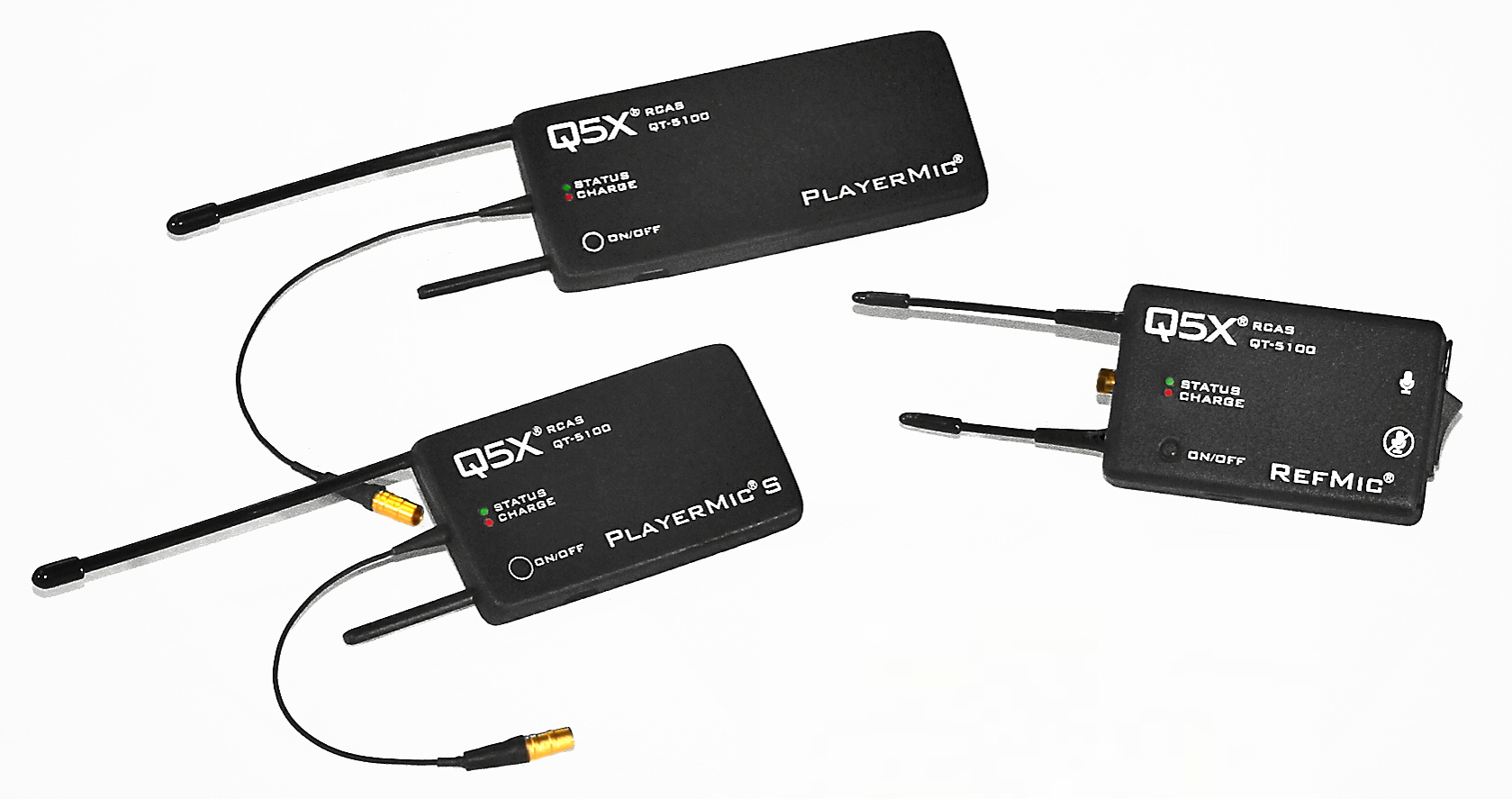
Quantum5X
Quantum5X (Q5X) is a privately owned corporation that specializes in wireless solutions for challenging audio problems in sports, broadcast and entertainment.
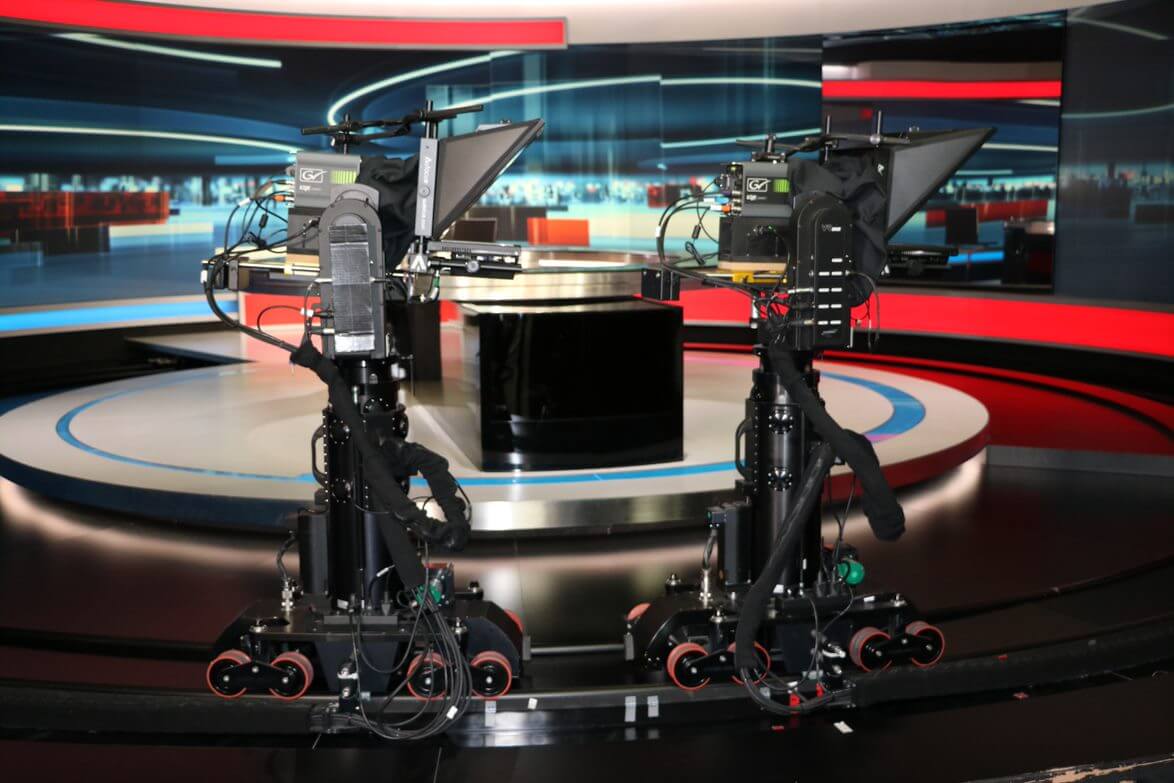
Ross Video
Ross Video Limited is an Emmy-winning designer and manufacturer of live video broadcast equipment. Founded in 1974 by its namesake, John Ross, the firm has experienced dramatic growth in the past several decades and now boasts a workforce of almost 1,000 employees across 13 global offices.
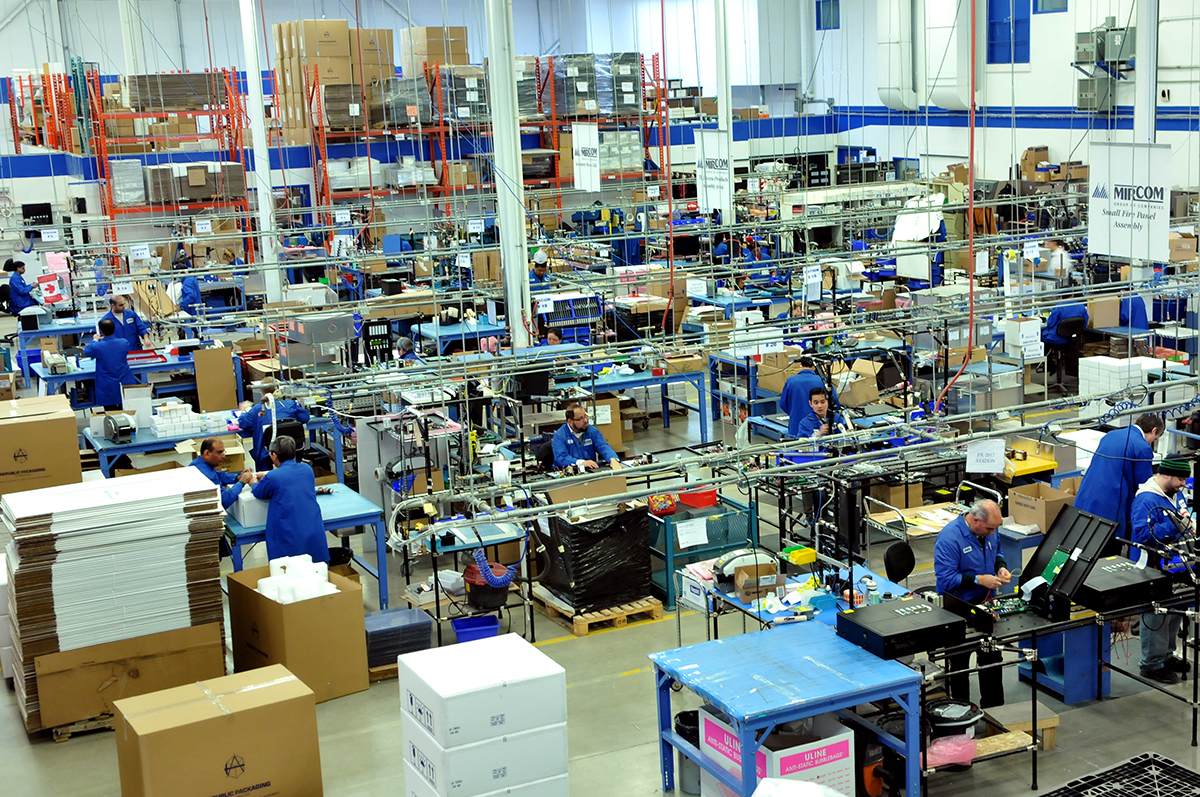
Mircom Group
Building on the past, planning for the future, while reacting to today’s challenges are keys to Mircom’s success.
